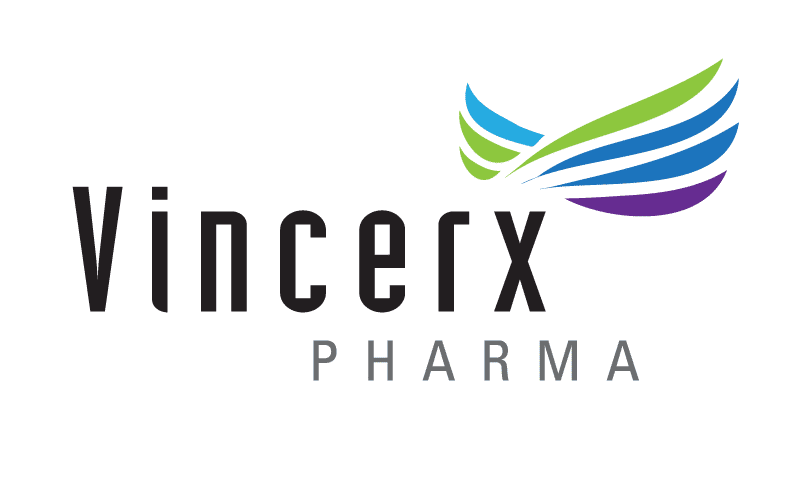预约演示
更新于:2025-05-07
KIF11
更新于:2025-05-07
基本信息
别名 EG5、HKSP、KIF11 + [11] |
关联
21
项与 KIF11 相关的药物靶点 |
作用机制 KIF11抑制剂 |
在研机构 |
最高研发阶段临床1期 |
首次获批国家/地区- |
首次获批日期1800-01-20 |
作用机制 CXCR5拮抗剂 [+1] |
原研机构 |
非在研适应症- |
最高研发阶段临床前 |
首次获批国家/地区- |
首次获批日期1800-01-20 |
51
项与 KIF11 相关的临床试验CTR20182114
盐酸领克尼斯胶囊(LH031)治疗复发/难治性多发性骨髓瘤的安全性、耐受性和药代动力学的I期临床研究
评价LH031单次给药及连续给药用于复发/难治性多发性骨髓瘤的安全性、耐受性; 确定剂量限制性毒性(DLT)及最大耐受剂量(MTD),为后期临床研究推荐合理的给药方案。
开始日期2019-08-15 |
申办/合作机构 |
NCT02384083
Phase I/II, Multicenter, Open Label, Clinical Trial of Filanesib (ARRY-520) in Combination With Pomalidomide and Dexamethasone for Relapsed/Refractory (R/R) Multiple Myeloma (MM) Patients
Phase I/II, Multicenter, Open Label, Clinical Trial to evaluate safety and efficacy and determine the Maximum Tolerated Dose (MTD) of Filanesib in combination with pomalidomide and dexamethasone in relapsed/refractory (R/R) Multiple Myeloma (MM) patients
开始日期2015-09-01 |
申办/合作机构 |
EUCTR2014-001052-39-AT
The FACTOR Study (Filanesib and Carfilzomib Treatment of Relapsed/Refractory Multiple Myeloma):A Multinational, Randomized, Open-label Phase 3 Study of Filanesib (ARRY-520) +Carfilzomib Versus Single-agent Carfilzomib in Patients With Advanced Multiple Myeloma
开始日期2015-05-15 |
申办/合作机构 |
100 项与 KIF11 相关的临床结果
登录后查看更多信息
100 项与 KIF11 相关的转化医学
登录后查看更多信息
0 项与 KIF11 相关的专利(医药)
登录后查看更多信息
1,229
项与 KIF11 相关的文献(医药)2025-07-01·Gene
Targeting Eg5 using Arry520 combats gastric cancer by inducing monopolar spindles
Article
作者: Zhang, Gengyuan ; Jiang, Xiangyan ; Zhao, Jie ; Sun, Ruofei ; Yu, Zeyuan ; Long, Bo ; Shi, Wengui ; Wei, Xinyuan ; Jiao, Zuoyi ; He, Na
2025-05-01·International Journal of Biological Macromolecules
Microtubule-mediated defence reaction of grapevine to Neofusicoccum parvum via the transcription factor VrWRKY22 promoting the kinesin-like protein VrKIN10C
Article
作者: Guan, Xin ; Sun, Xiaoye ; Tian, Xu-Bin ; Tang, Wanting ; Luo, Jiaxin ; Qin, Yafei
2025-04-01·Advanced Biology
KIF11 Inhibition Induces Retinopathy Progression by Affecting Photoreceptor Cell Ciliogenesis and Cell Cycle Regulation in Development
Article
作者: Chen, Jie ; Wei, Xiang ; Wei, Ya‐Lan ; She, Zhen‐Yu ; Luo, Xin‐Rui ; Xu, Yue ; Huang, Min‐Hui ; Wang, Xin‐Yao
18
项与 KIF11 相关的新闻(医药)2025-03-05
今天给大家讲一篇2025年1月在nature machine intelligence上发表的一篇基于结构的分子生成的文章。先前的方法通常只能解决先导化合物优化的某些方面,而且忽略了蛋白质-配体在三维空间中的关键相互作用,导致生成的分子质量不高。为此,作者提出了基于结构的分子生成方法Delete,它利用几何感知的等变网络来生成结合能力较优的分子。实验表明,Delete设计的LTK蛋白抑制剂CA-B-1在体外和体内实验中表现出高效性和选择性,因此该方法的提出解决了现有工具的局限性,有助于加速药物发现、提高研发成功率,并为首创药物、仿制药的设计提供了更高效的工具。
01
引言
药物设计旨在设计出能有效且安全地与特定靶点相互作用的分子。传统方法耗时耗力且成功率低,而人工智能辅助药物设计(AIDD)基于深度学习算法,加速了分子生成和优化过程,提高了效率和成功率。在分子生成方面,深度学习方法如JAEJER、GENTRL等算法通过在连续的化学空间中探索分子的策略来设计出不在现有化合物库中的类药化合物,再进一步进行筛选和评估。这些基于配体的药物设计方法需要通过已知活性分子进行微调来设计相应靶点的分子,往往受限于已知微调的活性化合物数量。此外,在先导化合物优化方面,机器学习模型建立相应的评分函数来分析先导化合物的结构与其生物活性之间的关系,以此来筛选相应的活性分子,最后将筛选出的分子进行合成和生物实验验证,提高了药物设计的效率,减少了实验成本,也加快了新药的研发进程。
02
Delete架构及设计流程
作者设计了一种方法(Delete)用于基于结构的药物设计,并对先导化合物进行优化,旨在解决现有方法在实际应用中的局限性。它的核心架构是一个几何感知的等变网络,用于理解蛋白质诱导的相互作用。在先导化合物优化方面,它可以适应多个子任务,包括片段生长、骨架跃迁和侧链修饰等。此外,还引入一种统一的掩码策略,包括三种基于数据增强方法的掩码策略(随机、空间和拓扑结构)以及特定优化任务的掩码策略。它通过学习蛋白质和配体的结构关系,不依赖于经验性的对接分数,从而避免了以对接分数作为奖励函数来筛选分子时出现的假阳性的问题,以至更准确地设计出符合现实世界的类药分子。
图1 Delete模型架构
03
实验结果
3.1 先导化合物优化的基准测试
为了评估Delete在多个先导化合物优化任务上的表现,作者选择了多种分子生成方法进行了全面评估,其中DeLinker、FFLOM、ScaffoldGVAE 和 SCMG是不考虑蛋白结构的分子生成方法,可以发现除了SCMG外,其余三种方法的平均对接分数均低于测试集中分子的平均值,这突显了在设计靶向药物时考虑结构的重要性。此外,DeepFrag在设计分子时考虑了蛋白的三维结构,然而它的搜索空间受到片段库的限制,可能会阻碍生成与蛋白口袋在形状、化学属性方面相互匹配的分子,并且无论是何种先导化合物优化方法,Delete均能生成相较于测试集而言对接分数更低的分子。通过常见的类药五原则的指标可以发现,缺乏蛋白质结构约束使得二维分子生成方法只需保证生成分子结构的合理性,因此在上述指标表现较好,而基于结构的方法生成的分子受到特定结构的限制,因此表现不佳。(图2)。
图2 先导化合物优化任务上的性能评估实验3.2 靶向驱动蛋白Eg5的药物设计
kinesin Eg5是癌症化疗药物开发中的重要靶点。作者以此为靶点,用Delete来对其抑制剂(BI8)进行骨架跃迁设计,首先移除了化合物的核心骨架,只保留了几个片段来生成新分子。在该任务中,它成功生成了131个新结构,这些结构与原化合物的2D平均相似性不高,但3D架构上的相似度较高。此外,由对接结果可以发现生成的40.5%的化合物对接分数超过了原化合物。上述结果表明,Delete模型在骨架跃迁设计任务中不仅能够保持原化合物的属性特征,还能探索新的化学空间,为药物设计提供了新的可能性(图3)。
图3 Eg5抑制剂的骨架跃迁设计3.3 LTK激酶抑制剂设计
LTK(淋巴酪氨酸激酶)的激酶活性对于非小细胞肺癌的发展是关键的,抑制LTK的活性可能能够阻止或减缓癌症的生长和扩散。因此,作者选取ALK抑制剂的某些片段作为起始片段,利用Delete模型来生成候选化合物。经过合成和生物活性筛选(图4b和图4d),最终选择了具有优异生长抑制活性的CA-B-1。通过体外试验和激酶选择性评估,验证了CA-B-1对LTK的特异性和抑制机制。在细胞水平上进一步确认了CA-B-1对LTK磷酸化的抑制效果,并验证了其药代动力学特性。这一流程全面展示了从靶点确认到候选化合物生成、验证到体外药效评估的全过程,表明了Delete模型在药物设计中的实用性和有效性。
图4 LTK激酶抑制剂设计
04
结论
通过对先导化合物进行优化,可以提高其药效、选择性、药代动力学等性质,从而有望成为候选药物。为此,作者开发了一个名为Delete的模型来进行先导化合物优化。
它通过3D分子生成和几何神经网络,能高效生成与特定靶点结合亲和力较高的配体并预测分子构象。实验表明,Delete在优化首创药物和改进现有药物方面表现优异。但它目前无法处理分子构象的柔性,且在遇到数据量较大或蛋白结构较复杂时可能面临计算挑战。未来需要改进模型以更好地捕捉分子动态变化,并增强其在不同蛋白上的适用性。
参考文献
[1] Chen S, Zhang O, Jiang C, et al. Deep lead optimization enveloped in protein pocket and its application in designing potent and selective ligands targeting LTK protein[J]. Nature Machine Intelligence, 2025: 1-11.
版权信息
本文系AIDD Pro接受的外部投稿,文中所述观点仅代表作者本人观点,不代表AIDD Pro平台,如您发现发布内容有任何版权侵扰或者其他信息错误解读,请及时联系AIDD Pro (请添加微信号sixiali_fox59)进行删改处理。
本文为原创内容,未经授权禁止转载,授权后转载亦需注明出处。有问题可发邮件至sixiali@stonewise.cn
关注我,更多资讯早知道↓↓↓
细胞疗法
2025-02-20
DRUGAI
本文介绍一篇来自浙江大学潘培辰、侯廷军、康玉和谢昌谕团队联合香港科技大学黄湧联合发表的一篇论文。该研究提出一种基于深度学习的先导化合物优化模型Delete(Deep Lead Optimization Enveloped in Protein Pocket),结合生成式AI与基于结构的分子设计策略,首次实现linker设计、片段替换、骨架跃迁及侧链修饰等所有先导化合物优化子任务的全流程整合。研究团队将Delete应用于非小细胞肺癌全新致癌靶点CLIP1-LTK,成功设计出纳摩尔级活性分子(IC50=1.36nM),其选择性及抗肿瘤机制已通过体内外实验验证。这项工作代表了基于蛋白质结构的生成 AI 的成功实施,提出了一个高效的先导化合物优化模型 Delete,为分子设计和药物开发领域提供一种高效、精准且可靠的优化工具。
研究背景
长期以来,药物发现一直被认为是一个耗时、昂贵且风险高的过程,现代人工智能辅助药物设计(AIDD)通过自动发现候选药物分子来加速这一进程。AIDD 的一个应用在于分子生成,以 JAEJER、GENTRL 和 GDL-RIPK1 为例,它们通过超越离散化学库直接在连续化学空间中探索分子。然而,目前经过验证的分子生成工作主要集中在基于配体的从头设计(De novo Design)模型上,这并不满足现实中的药物设计需求。首先,基于配体的方法局限于经过充分研究的靶标,需要对已证明对目标蛋白质有活性的分子进行微调,对全新的靶标不具备通用性。此外,对先导分子进行结构修饰以提高分子活性、减少毒性、改善成药性等是药物发现必经的过程,从头设计方法并不适用于优化过程。
为了应对这些挑战,研究者试图实现两个基本概念:基于结构的范式和先导优化方法,这种整合催生了Delete(Deep Lead Optimization Enveloped in Protein Pocket)。与主要侧重于通过数据记忆识别化学模式的基于配体的范式不同,基于结构的方法寻求掌握底层物理原理。如 DiffSBDD、Pocket2Mol 和 ResGen,它们将蛋白质结构视为硬条件,直接在口袋内生成分子。受这些工作的启发,Delete 利用几何感知和等变网络作为骨干来理解详细的蛋白质诱导相互作用。通过这种方式,该模型可以有效地用于研究看不见的靶标,因为尽管 3D 结构因情况而异,但底层的基本物理保持不变。另一个概念先导优化,AIDD 领域中当前的先导优化模型往往是单任务导向的,主要基于配体,如 DeepFrag、DiffLinker、FFLOM 和 ScaffoldGVAE。这些模型的两个特点限制了它们在现实场景中的适用性。研究者在Delete中将先导化合物优化任务总结为四个不同的子任务:Linker设计、片段替换、骨架跃迁和侧链修饰,为先导化合物优化提供了一种开创性的基于结构的综合解决方案。
Delete架构
Delete 的构建依赖于统一的掩码策略、相互作用框架、分子生成框架和损失函数。在输入蛋白质和先导化合物片段后,使用拓扑表面模型对蛋白质进行建模,而使用几何图模型对分子进行建模。相互作用表征框架学习蛋白质口袋和先导片段的拓扑和几何相互作用,从而产生具有几何和能量信息的节点表示。分子生成采用自回归形式,使其能够完全与拓扑口袋相互作用,然后使用口袋信息作为强约束来指导分子生成过程。生成框架由生长点预测模块、几何生成模块和拓扑预测模块组成。
图 1. Delete工作流程示意图。
结果与讨论
Delete生成分子质量的计算评估
Delete模型是一个一站式先导化合物优化模型,作者分别展示了其在四个先导化合物优化任务下生成分子的质量。衡量一个将蛋白质结构作为强约束的模型的首要指标就是设计的对应分子与对应靶标之间的结合紧密程度,最直观的反应就是原位结合能Scoring和对接结合能Docking。如表1所示,在这两个指标当中,Delete在四个子任务上均击败了基线模型,每个子任务上超出第二名方法接近1 kcal/mol的结合能增益。值得注意的是,其中DeLinker,FFLOM,ScaffoldGVAE和SCMG都是2D生成的方法且无法考虑蛋白结构,所以没有原位结合能指标。除了SCMG外,三个模型的平均对接结合能均低于测试集的分子,解释了在设计抑制剂时模型对结构的感知的重要性。对于另外三个具有结构感知能力的模型,即DiffLinker、DeepFrag和Fragmenstein,除了DiffLinker和测试集的平均结合能较为接近之外,其他两个模型均落后于测试集的分子0.5 kcal/mol左右的对接结合能。这可能和DeepFrag和Fragmenstein的模型原理有关。总之,从对接结合能,原位结合能和口袋命中率三个指标来看,虽然Delete模型并不是针对某一个特定任务所设计的,但是其在每个子任务上均实现了SOTA的效果,反应了Delete作为一个统一模型,其条件结构生成能力可以在不同的子任务之间获得持续的增益。
除了最直接相关的结合能指标之外,表1还列了4个常见的分子属性指标,即定量类药性(QED),合成难度(SA),Lipinski五规则以及LogP。这几个指标常用于分子优化模型的评测,然而在研究者的结构生成模型当中,条件只有输入的蛋白结构。所以作者认为在这四个相对弱关联的指标上,模型生成的分子和测试集中真实的分子类似即可。具体而言,在这四个分子属性的指标上,2D模型在四个任务当中累计取得了8次最优,这是因为2D模型一般以CHEMBL,ZINC等较大的分子库进行训练,比CrossDock 10w训练分子的数量要高出1-2个量级,自然使得模型在生成的时候对类药分子的可能化学空间有更多的选择;除此之外,没有蛋白质结构的约束也使得2D模型只需要考虑生成分子的合理性,进而可以自由探索化学空间。所以在分子属性指标上,2D模型取得了不俗的表现。除此之外。和其他的三个结构感知模型相比,Delete取得了一次分子属性的最优值(Linker设计当中的SA),DeepFrag则取得了三次。这是因为DeepFrag进行采样的片段库当中的片段都较小,自然带来了分子属性方面的增益。总体而言,Delete模型生成的分子属性虽然由于方法学的限制无法取得SOTA结果,但是其生成的结果仍然可接受,即与测试集当中的分子类似。Delete最后生成的分子还经过了回溯性研究和湿实验的验证,进一步证明其有效性。
表1. Delete模型在四个子任务上合基线模型的分子属性对比
Delete的回溯性研究
由于计算指标本身的偏差,对接软件计算的能量指标或分子特性可能不足以准确评估模型。例如,由于结合能贡献的加性,结合能指标倾向于有利于具有更多原子数的分子。相反,对于可合成性,原子数较少的分子自然更容易合成。因此,回顾性研究模拟历史药物发现案例以检查模型是否能够重现相应的输出结果,提供了另一个直观和定性的视角。作者进行了五项回顾性研究,包括肌苷 5'-单磷酸脱氢酶 (IMPDH) 和 SMARCA2 (PROTAC) 的linker设计、β1-肾上腺素能受体 (Adrb1) 的片段替换、驱动蛋白 Eg5 的骨架跃迁以及 D2 多巴胺受体 (DRD2) 的侧链修饰。文中以癌症化疗药物开发的关键靶标驱动蛋白-5(Kinesin-5, Eg5)为案例进行骨架跃迁的回溯性研究。
Ulaganathan等人使用X射线方法鉴定并表征了Eg5的一个变构口袋,开发了具有纳摩尔级活性的抑制剂BI8。根据这项工作,作者采用BM骨架分解方式,删除了BI8化合物的骨架,仅保留了一些小片段用于Delete生成的输入结构。
Delete成功生成了131个结构。尽管输入的是分布在空间当中的极小的片段,Delete仍然能生成合理的跃迁骨架。具体而言,生成分子的平均2D相似度仅为0.47,表明生成的骨架与原始骨架相比发生了足够多的结构变化(以前的工作将0.6作为阈值);3D形状相似度高达0.79,表明生成的分子保留了原始化合物的空间特征。图中展示了能量指标的分布,说明了Delete骨架跃迁的分子40.5%具有比原始分子更好的对接结合能。图中展示了四个生成化合物的叠合图、相互作用分析和骨架所对应的2D结构。第一个示例是一个与原始结构仅差一个氟原子的骨架,并且其几何构象几乎与原始晶体结构完美重叠,保持了几乎所有重要的相互作用。其他三个示例展示了Delete生成的三个具有完全不同的骨架的分子。这些分子不仅保留了与原始结构接近的3D构象,并且保持了在晶体结构中观察到的大部分相互作用,如与W127、L160、L214、F239的疏水键和与G217的亲水键。有趣的是,即使只基于口袋内散布的几个原子,Delete仍能为化学家提供有潜力的骨架结构。既然Delete可以在最具挑战性的BM骨架当中取得令人印象深刻的结果,那么其在更简单的骨架跃迁任务当中自然也会有类似甚至更好。
图 2. Eg5-骨架跃迁任务回溯性研究。
Delete针对LTK靶点的药物设计
为了进一步说明Delete在现实世界当中药物设计的能力,作者将Delete运用在了针对LTK靶点的药物设计当中。CLIP1-LTK是非小细胞肺癌的致癌融合突变,蛋白的融合导致LTK激酶域的活性失控,有效的治疗策略就是设计靶向LTK蛋白的小分子抑制剂。截止目前,尚未有关于LTK靶向抑制剂设计的报道,但是其高度同源蛋白ALK则已有详尽的研究,作者推测可以利用ALK靶标上的部分片段作为先导分子,用于锚定化合物进入结合口袋,之后再利用Delete对结构进行生成改造,设计出与结合口袋契合的候选化合物。
作者在之前针对ALK靶标的研究中曾发现一个活性较好的小分子抑制剂,但由于不良的药代动力学性质导致其体内效果较差。通过分析其与靶标蛋白之间的结合模式,作者将其用作Delete的起始片段进行分子生成,并对生成的结果基于结合亲和力、ADMET性质以及合成复杂度对生成结果进行进一步的评估。最终合成出八个候选化合物,经过细胞水平实验的初步检测,当中有6个展示出< 1 μM 级别的抑制活性,其中CA-B-1达到了6.60 nM的细胞抑制IC50值。在后续的实验中,研究者发现该小分子具有高度选择性,能够抑制LTK下游信号通路的传导,诱导细胞凋亡、阻滞细胞周期,并在体内表现出优异的抗肿瘤效果,药代动力学性质相比于起始小分子有显著提升。CA-B-1的高选择性和高活性证明了Delete所代表的基于结构的AI设计策略的有效性。
图 3. Delete应用于LTK的药物设计。
总结
作者通过引入 3D 分子生成框架和统一的掩码策略,提出了药物发现中先导化合物优化的一体化解决方案—Delete。与现有的 DeLinker 和 DeepFrag 等单任务模型相比,该框架使单个模型能够以出色的效率执行先导化合物优化的多项任务。此外,基于配体的模型仅生成随机分子,而不生成功能性配体。在 Delete 中嵌入几何神经网络可以同时预测完整分子的近自然构象,统一分子生成和构象生成。在四种不同的先导化合物优化场景下进行的综合评估证实了 Delete 的功能。它不仅可以用于优化首创药物的先导化合物,还可以帮助药物化学家通过对现有药物进行结构修改/替代来开发同类产品/更好的产品。
但Delete仍然面临一些问题,一个值得注意的挑战是它无法解释构象灵活性,生成的配体完全基于结合口袋的刚性几何和能量特性。未来的改进可能涉及采用动态图神经网络来更好地捕捉配体和其靶口袋之间的诱导契合效应。此外,将 Delete 扩展到更大或更多样化的数据集也带来了潜在的挑战,因为增加的计算需求可能会阻碍性能并减慢开发过程,尤其是在应用于复杂的蛋白质靶标和广泛的化学库时。为了进一步提高 Delete 在不同蛋白质靶标中的通用性,未来的研究应优先考虑改进训练方法和整合更有效的数据以及采样技术。
参考资料
Chen, S., Zhang, O., Jiang, C. et al. Deep lead optimization enveloped in protein pocket and its application in designing potent and selective ligands targeting LTK protein. Nat Mach Intell (2025). https://doi.org/10.1038/s42256-025-00997-w
引进/卖出
2024-12-19
·小药说药
关注小药说药,一起成长!
前言
抗体偶联药物(ADC)是由靶向特异性抗原的单克隆抗体与小分子细胞毒性药物通过连接子链接而成,兼具传统小分子化疗的强大杀伤效应及抗体药物的肿瘤靶向性。ADC由三个主要部分组成:负责选择性识别癌细胞表面抗原的抗体,负责杀死癌细胞的药物有效载荷,以及连接抗体和有效载荷的连接子。
ADC对抗原的识别导致ADC通过内吞途径进入细胞内,通过溶酶体降解后,有效载荷以生物活性形式释放并发挥作用,导致癌细胞死亡。细胞内有效载荷的数量由每个细胞表面抗原的数量、每个ADC的药物有效载荷分子的数量(也称为药物抗体比率,DAR)以及抗原返回细胞表面所需的时间决定。有效载荷可能在癌细胞死亡和降解后逃逸,也可能从胞浆中透膜而出。这种释放的后果可能是有益的(也称为旁观者效应),也可能是有害的,导致全身毒性。
ADC中有几个变化的部分,成功显然没有通用的公式。因此,如何选择合适的抗体、在何处以及如何将连接子连接到抗体、每个抗体连接多少药物分子、如何连接连接子和药物有效载荷、最佳药物有效载荷是什么样的?这些问题需要我们深刻理解ADC各个组分的生物学和化学特性,才能获得满意的答案。
微管破坏药物
金盏花素
Auristatins是ADC中使用的重要有效载荷,最著名的家族成员MMAE存在于两种上市药物Adcetris和Polivy中。目前,超过10种以金盏花素(如MMAE)或一甲基金盏花素F(MMAF)为有效载荷的ADC正在进行临床试验。
上图描述了auristatine及其常用的连接位点。金盏花素的构效关系(SAR)已被广泛研究,主要集中在末端亚单位:P1(N-末端)和P5(C-末端),最常见的方法是在P1上引入氨基甲酸酯功能。
2015年,西雅图遗传学的研究人员将ADC有效载荷的范围扩大到包括叔胺,特别是N-二甲基auristatine,首次通过铵键将药物与单克隆抗体结合。所得ADCs在生理条件下稳定,体内外活性高,免疫特异性强。这些结果扩大了ADC可用于靶向给药的药物种类。
最近,Agensys公司通过调节中心亚基P2-P3-P4,将叠氮化物基团引入P2和P4亚基,在与蛋白酶可裂解的连接子偶联后,产生了在体外和体内效力提高的亲水性衍生物,这为连接子的连接提供了新途径。
一般来说,在同时含有胺和醇反应的auristatin中,首选的连接点是胺通过氨基甲酸酯键偶联。西雅图遗传学开发了一种新的策略,将含醇的有效载荷与亚甲基烷氧基氨基甲酸酯(MAC)偶联。为了稳定MAC键,碱性基团和吸电子基团都靠近氨基键,结果表明,该偶联物在生理条件下是稳定的,具有很高的效价,并且在体内外都具有免疫特异性。
此外,乌普萨拉大学的研究人员还开发了AZASTATIN,作为一类新的强有力的auristatin衍生物,包含一个中心胺侧链的抗体结合位点。他们的研究结果证实,这些auristatin衍生物是一类新的细胞毒性有效载荷,适合ADC开发。
美登素衍生物(DM2,DM4)
美坦辛是一种非常有效的微管组装抑制剂,可诱导细胞的有丝分裂停止。但是这种结构很难共轭,因为它没有反应性官能团,为了克服这个问题,一系列含有SMe基团的非常有效的衍生物被创造出来。这一类分子的第一个例子是DM1和DM4,它们带有甲硫丙酰基而不是天然N-乙酰基。
从有效载荷DM1和DM4中,通过使用二硫键与连接子偶联。稳定的二硫键连接子在血液循环中表现出良好的稳定性,同时在细胞内保持有效的分裂。
此外,几种基于maytansine的ADC利用相同的二级羟基作为附着点,并在大多数情况下携带转谷氨酰胺酶生物结合的连接子。例如,一种基于Daratumumab的ADC被证明能向CD38过度表达的癌细胞特异性地传递DM4。最近ImmunoGen开发了一种新型的ADC,它包含一种含硫的maytansinoid,通过一种高度稳定的三肽连接体连接到抗体上,附着点与上述羟基相同。与先前的美登素ADC相比,增加连接物中亚甲基单元的数量增加了旁观者杀伤活性,并提高了小鼠体内的疗效。在类似的方法中,保持核心大环不变,Regeneron和Abzena的研究人员研究了N-甲基丙氨酸氮取代的影响,也改变了大环上侧链的长度,以及通过伯胺和仲胺连接的连接子。
微管溶素
Tubulysins是微管聚合的有效抑制剂,可导致分裂细胞的细胞骨架迅速解体,并导致细胞凋亡。它们是一个天然存在的四肽家族,含有Mep、Ile、Tuv和Tut,R3=OH或Tup,R3=H。
利用Tubulysins作为ADC有效载荷,其广泛的附着点已被充分开发。这种结构中一个明显的附着点是Tut或Tup模块的羧酸,如Endocyte的EC1428,其中羧酸通过酰肼部分连接到连接子。Oncomatryx公司也采用了同样的方法,以同样的方式安装了可切割的PABAValCit马来酰亚胺连接子。
阿斯利康、百时美施贵宝和辉瑞使用的另一种方法依赖于Tup或Tut中苯环的衍生化。
连接子与Mep基团的连接也得到了广泛的研究。Ingenica研究人员报告说,去甲基Mep类似物保留了强大的细胞毒性活性,可被视为有价值的有效载荷,允许在仲胺上引入不可切割的马来酰亚胺己基连接子。
Oncomatryx的研究表明,当Mep被另一个拥有仲胺的基序取代时,通过氨基甲酸酯键引入可切割的连接体是产生ADC的有效途径。特别有趣的是,基因泰克关于通过季铵基团将连接子连接到含叔胺的有效载荷上。在有效载荷上引入mc-Val-Cit-PABA连接子导致更多亲水性结合物并改善了血液中的稳定性。西雅图遗传学也采用了同样的方法,通过过度表达葡萄糖醛酸,葡萄糖醛酸连接子也可以改善亲水性和选择性的细胞内切割通过癌细胞中过表达的β-葡萄糖醛酸酶。
隐粘菌素
隐粘菌素(Cryptomycins,CR)是一个具有抗肿瘤活性的六元大环二肽家族。已有的临床试验的结果表明,在达到治疗效果所需的剂量下,其毒性水平是不可接受的。
几个小组尝试将CR用于ADC,但是由于在CR中缺少偶联位点,目前,有两种不同的方法通过引入其它基团,使得能够连接ADC的连接子。一种是由基因泰克的研究人员将苯转化为苄胺以产生有效的有效载荷,这种有效载荷适合通过氨基甲酸酯键连接。在第二种方法中,四川大学的研究人员利用了隐霉素-52的前药形式(CR55),它可以在生理条件下重新环化为CR52。
抗有丝分裂EG5抑制剂
纺锤体驱动蛋白(KSP,也称为Eg5或KIF11)是一种ATP依赖性运动蛋白,参与细胞周期中心体的分离。因此,用KSP抑制剂(KSPis)阻断有丝分裂中的这一重要事件可产生抗肿瘤效力。
拜耳发现了一个新的吡咯亚类的KSPis,他们研究了该分子不同位置与保持对KSP强亲和力的连接子的连接兼容性。
同样,诺华的研究人员使用含咪唑的KSP抑制剂作为Eg5 ADC。利用伯醇或仲酰胺部分,他们安装了带有马来酰亚胺端基的不可裂解连接子。当与靶向HER2和c-KIT的抗体偶联时,得到的ADC显示出优于Kadcyla的体内疗效。
DNA损伤药物
吡咯苯并氮卓类和吲哚氯苯并氮卓类
吡咯并[2,1-c][1,4]苯二氮杂卓(PBD)是一类具有抗肿瘤活性的天然产物。它们的作用方式是在DNA的小凹槽中进行选择性烷基化,其中鸟嘌呤的N2与PBD上的亲电N10/C11亚胺形成共价键。
西雅图遗传学使用SGD1882的苯胺作为附着点,模仿可切割连接子中常用的PAB单元,释放自由的PBD有效载荷。StemCentrx与Spirogen合作,利用PBD的N-10位置连接一个氨基甲酸酯的连接子。同样的氨基甲酸酯键也被Immunogen用于结构相似的吲哚氯苯偶氮卓二聚体(IBD)有效载荷。他们还报道了同一类IBD的不同方法,其中一个取代的苯环被用作两个IBD单体的C8/C8'位置之间的连接物。
以类似的方法,Spirogen和Genentech设计了一种碘苯连接的PBD,允许在过渡金属催化反应中引入不同的连接子。通过使用Sonogashira偶联、Buchwald–Hartwig偶联或叠氮化物-炔烃点击反应,分别获得炔烃、哌嗪或三唑连接的连接子有效载荷共轭物。
杜卡霉素
杜卡霉素是一种强大的细胞毒性物质,通过其高活性的环丙烷环与DNA的小凹槽结合,并在N3位置烷基化腺嘌呤。非环化的,卤甲基形式的杜卡霉素细胞毒性活性显著降低。由于分子中苯酚基团可作为内消旋体激活剂,从而形成亲电环丙烷,因此杜卡霉素ADC开发中的连接策略集中于酚官能团的连接子连接。
在Synthon开发的SYD985中,苯酚基团是通过双氨基甲酸酯连接连接子与Mc-val-cit-PABC有效载荷的位置。组织蛋白酶B裂解后,游离苯酚促进分子内重排成亲电环丙基形式。Medarex采用了一种不同的方法,通过分子非烷基化部分的芳香胺连接连接子,并用N-甲基哌嗪氨基甲酸酯部分掩蔽苯酚前药。在体内,苯酚将被释放,随后活性环丙烷将在羧酸酯酶的作用下形成。
喜树碱
喜树碱(CPT)及其衍生物是拓扑异构酶I抑制剂的经典例子。它们稳定了拓扑异构酶诱导的DNA单链断裂,当三元DNA-TOP1-抑制剂复合物遇到复制叉时,DNA发生双链断裂。天然喜树碱是一种五环结构,其极低的溶解性阻止了其作为癌症治疗药物的广泛应用。其水溶性前药伊立替康获得了转移性结直肠癌的上市许可。SN-38是伊立新坦的活性代谢物,通过人体肝脏羧酸酯酶的作用在体内生成,其可通过打开内酯环而失活。
Immunomedics建立了两种不同的策略,通过其羟基部分结合SN-38。在一个例子中,连接子通过反应性更强的C-10苯酚基团连接,从而产生稳定的氨基甲酸酯键,而在另一个例子中,通过C-20羟基,同时稳定内酯形式,而C-20羟基对体内效力至关重要。
另一种适合ADC的非常有效的药物是依沙替康(DDX-8951f)。这种喜树碱类似物在其环己烷环上具有胺取代基,桥接7和9位。依沙替康的氨基有助于其水溶性,而环己烷环赋予的刚性被认为有利于活性内酯形式与非活性水解羟基酸的平衡。氨基羟基乙酰化生成DXd(1),而4-氨基丁酰化生成DXd(2),这两种化合物都保留了依沙替康的生物活性。
悬垂的羟基和氨基是明显的附着点,可使用酶可切割的Gly-Gly-Phe-Gly四肽连接子连接有效载荷。与抗HER2抗体偶联产生的ADC在临床环境中显示出对抗HER2表达癌症的巨大潜力。
DXd的环己胺环虽然被认为稳定了生物活性内酯形式,但它携带了一个手性中心,使合成工作和SAR研究复杂化。为了克服这一困难,Immunogen的研究人员研究了一组新的喜树碱类似物,这些类似物能够与单抗偶联。并且在这里,这个环被打开,额外的手性中心被消除。从一种常见的中间产物开始,研究人员尝试了三种类型的结构,并随后使用不同的聚苯胺连接子连接有效载荷。当与抗人表皮生长因子受体(HuEGFR)的抗体偶联时,产生的ADC对EGFR阳性的HSC-2肿瘤异种移植模型有效。
卡奇霉素
卡奇霉素是一类被广泛研究的烯二炔类抗生素,其结构和作用机制特别有趣和复杂,使其成为ADC有效载荷领域的一类抗生素。在ADC中连接calicheamicin的策略以市场上的adc Mylotarg为例,还有Besponsa。
有效载荷的释放分两步进行:在酸性细胞内环境中对腙进行敏感的裂解,然后通过细胞内谷胱甘肽还原二硫键。释放的硫醇发生分子内1,4-加成的烯酮触发伯格曼环化反应,产生一个二自由基。这种活性中间体能够从脱氧核糖骨架中提取氢原子,产生双链DNA断裂,进而导致细胞死亡。
最近,从不列颠哥伦比亚地衣中发现的链霉菌中分离出一种新的烯二炔类天然产物,称为uncialamycin。这种结构通过全合成得到证实,从那时起,一些高效的合成类似物被制备成ADC的潜在有效载荷。
BMS的研究人员表明,由于在各种肽偶联条件下反应活性较低,因此,Uncialamycin的仲胺不是一个合适的连接点。研究人员合成了一种类似物,其中一个氨基直接引入到芳香环上,但这种苯胺的反应性也太弱,不能作为连接子引入的基团。另一方面,使用氨基乙基延伸物安装脂肪族胺,为连接子提供了合适的连接点。
从后一个有效载荷中,他们使用蛋白酶可切割的二肽和不可切割的连接子制备前体。CD70-ADC具有可切割连接体,对肾癌细胞株具有高度特异性的细胞毒活性,而相应的不可切割ADC在同一细胞株上不具有活性。
最近,为了继续这项工作,BMS的研究人员在设计的、高效的、化学稳定的uncialamycin类似物中使用苯酚基作为附着点。使用新开发的苯酚烷基化,在有效载荷的苯酚基团上添加了一个经典的可裂解连接子。将产生的有效载荷与抗体偶联,其在体外和体内均显示抗原特异性抗肿瘤活性。
创新药物
凋亡诱导剂(Bcl-xL抑制剂)
抗凋亡Bcl-2家族成员(包括Bcl-xL)的过度表达是癌细胞获得凋亡抵抗的机制之一。能够阻断Bcl-xL上BH3结合域的药物可以触发癌细胞凋亡。2017年,AbbVie首次以ADC的形式展示了BcL-xL抑制剂的有效载荷,其靶向表达EGFR的特定细胞或组织。有趣的是,研究人员在有效载荷上使用了三个不同的连接点来连接可切割的连接子。氨基烷基延伸的核心修饰用于在需要时建立合适的连接位点。
泰兰司他丁及其类似物
靶向剪接体是一种参与mRNA加工的大型核糖核蛋白复合物,为靶向癌症治疗提供了一种有希望的治疗选择。有几种天然产物能够通过与不同的剪接体亚单位结合来抑制RNA剪接。最具代表性的是thailanstatin A,它可以与剪接体的SF3b亚单位结合,从而阻止RNA剪接。
Thailanstatin A缺乏一个适合连接连接子的基团。为了解决这个问题,将羧酸与乙二胺偶联以引入含有胺的间隔基,该间隔基通常用于连接子的安装。
将这种天然产物用于ADC的另一个困难是存在多种反应性功能。例如,中心核中的二烯可以通过Diels–Alder反应与用于生物结合的马来酰亚胺部分反应。这个问题是通过使用另一个共轭部分,卤代乙酰胺来解决的。结合这两种修饰并包含可切割连接子的ADC首次在专利文献中报道,并且声称它们在几个表达HER2的细胞系中具有适度的活性。
最近,辉瑞报告说,羧酸直接与抗体的有效表面赖氨酸(无连接子偶联)结合导致迄今为止最有效的Thailanstatin ADC。这些赖氨酸偶联物的活性与药物负载有关,而其他有效载荷类通常没有观察到这种特性。ADCs在胃癌异种移植模型中显示出良好的作用。
鹅膏毒素
在ADC技术领域,使用类似amatoxins的转录抑制剂是一种相对较新的方法。九种天然存在的amatoxin衍生物具有相同的骨架结构,一个由八个L-构型氨基酸组成的大环,通过亚砜部分连接在色氨酸和半胱氨酸残基之间。amatoxins的三个侧链是羟基化的,OH基团具有良好的水溶性并与目标分子结合。两种肽,α-鹅膏糖蛋白和β-鹅膏毒素,占所有毒素的90%。
在amatoxins上共使用过三个附着点产生ADC。第一次尝试是将β-鹅膏毒素的羧基偶联到IgG上赖氨酸的氨基,这种连接具有良好的血浆稳定性和高细胞毒性,但这种生物偶联的产率很低。二氢异亮氨酸的羟基也被认为是一个连接点,引入谷胱甘肽作为连接子,然后通过赖氨酸结合,可获得体外细胞毒性和体内抗肿瘤活性优异的ADC,但不幸的是,由于血清羧酸酯酶裂解连接子,导致其循环稳定性差。第三种方法,附着于色氨酸的6-羟基代表了目前的标准程序,苯酚与各种连接子的醚化导致了高度稳定和有效的ADC。由于鹅膏毒素其它氨基酸要么不具化学活性,要么是与RNA聚合酶II结合的关键,因此不能将其它的鹅膏毒素氨基酸(即羟脯氨酸、甘氨酸、异亮氨酸和半胱氨酸)用于偶联。
基于amanitin的代表性的ADC为HDP-101。有效载荷本身是一种合成的金刚烷醇衍生物,优化了稳定性。与天然天麻素相比,两个差异是色氨酸中没有6′-OH,硫醚链取代亚砜。通过天冬氨酸侧链上酰胺的形成,引入组织蛋白酶B-裂解连接子。
最近,Park及其合作者为含苯酚的有效载荷设计了一种新的连接基序(OHPAS)。它是一种二芳基硫酸盐,一个芳基部分来自有效载荷,另一个来自连接基序的潜在苯酚基团。将该技术应用于曲妥珠单抗ADC中的a-鹅膏毒素,在体外和体内表现出强大的细胞毒性。
烟酰胺磷酸核糖转移酶
烟酰胺磷酸核糖基转移酶(NAMPT)是一种负责将烟酰胺转化为烟酰胺单核苷酸的酶,其抑制剂在各种临床前和临床研究中显示出有效性,但其临床应用受到靶向毒性和剂量限制性毒性的限制,如血小板减少和胃肠道不良反应。
诺华公司的研究人员在NAMPT抑制剂有效载荷中的苯环对位中引入哌嗪部分,确定了合适的连接子附着点。这种分子在c-Kit和HER2表达细胞系上表现出纳摩尔水平的效力,并且耐受性良好,在体内表现出靶向依赖性。
卡马霉素
从库拉索菌中分离得到两种新的蛋白酶抑制剂,卡马霉素A和卡马霉素B。两者都具有亮氨酸衍生的α,β-环氧酮弹头直接连接到甲硫氨酸亚砜或甲硫氨酸砜。他们被发现能抑制酿酒酵母20S蛋白酶β5亚单位活性(糜蛋白酶样活性)。此外,它们对肺癌和结肠癌细胞株具有很强的细胞毒性。
然而,由于它们的高效价,它们的选择性较差,经常表现出毒副作用。因此,剧毒的卡马霉素衍生物适合作为ADC的弹头,可以保持所需的效力,并获得更好的耐受性。所设计的类似物均在P2位置并入砜甲硫氨酸衍生物(如卡马霉素B),而不是卡马霉素A中的亚砜甲硫氨酸,因为这消除了亚砜基立体异构体混合物产生的结构复杂性。
第一代类似物在P4末端含有胺基,不幸的是,这个附着点并不合适,因为有效载荷显示细胞毒性活性降低。第二代卡马霉素类似物在P2侧链上含有一个胺基,当短乙基氨基链延伸磺酰基时,效果最好。在第三代类似物中,芳基连接砜和胺,因此降低了它的碱性。第二代和第三代有效载荷都显示出强大的体外活性,并用可切割或不可切割的连接子连接。不幸的是,没有一种ADC对受试癌细胞系表现出比曲妥珠单抗更高的细胞杀伤能力。
参考文献:
1.The Chemistry Behind ADCs. Pharmaceuticals (Basel). 2021 May; 14(5): 442.
公众号内回复“疫苗篇”或扫描下方图片中的二维码免费下载《小药说药疫苗篇》的PDF格式电子书!
公众号已建立“小药说药专业交流群”微信行业交流群以及读者交流群,扫描下方小编二维码加入,入行业群请主动告知姓名、工作单位和职务。
抗体药物偶联物
分析
对领域进行一次全面的分析。
登录
或

生物医药百科问答
全新生物医药AI Agent 覆盖科研全链路,让突破性发现快人一步
立即开始免费试用!
智慧芽新药情报库是智慧芽专为生命科学人士构建的基于AI的创新药情报平台,助您全方位提升您的研发与决策效率。
立即开始数据试用!
智慧芽新药库数据也通过智慧芽数据服务平台,以API或者数据包形式对外开放,助您更加充分利用智慧芽新药情报信息。
生物序列数据库
生物药研发创新
免费使用
化学结构数据库
小分子化药研发创新
免费使用




